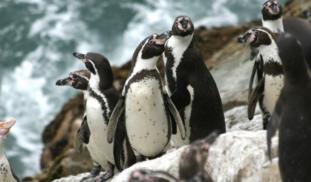Please wait...
About This Project
Penguins are suffering population declines due to a variety of human causes, including disease. One indicator of these could be the presence of Salmonella, a very serious bacterium that infects multiple species.
Salmonella will be isolated from two penguin colonies with different anthropogenic influence and its resistance to antibiotics will be measured. This could serve as a basis for establishing preventive measures in areas where the wildlife-human interface may pose a risk to both.
More Lab Notes From This Project

Browse Other Projects on Experiment
Related Projects
Disrupting cancer cell signaling through drug discovery
Most cancer-related deaths are caused by metastasis, the spread of cancer cells to distant tissues. This...
CaniSense– AI-powered blood test for early cancer detection in dogs
Cancer is the leading cause of death in dogs, yet no reliable methods for early screening exist. At testblu...
Shutting down cancer’s recycling system with exosome-based therapy
Pancreatic cancer is one of the deadliest cancers because its cells survive by recycling their own components...





